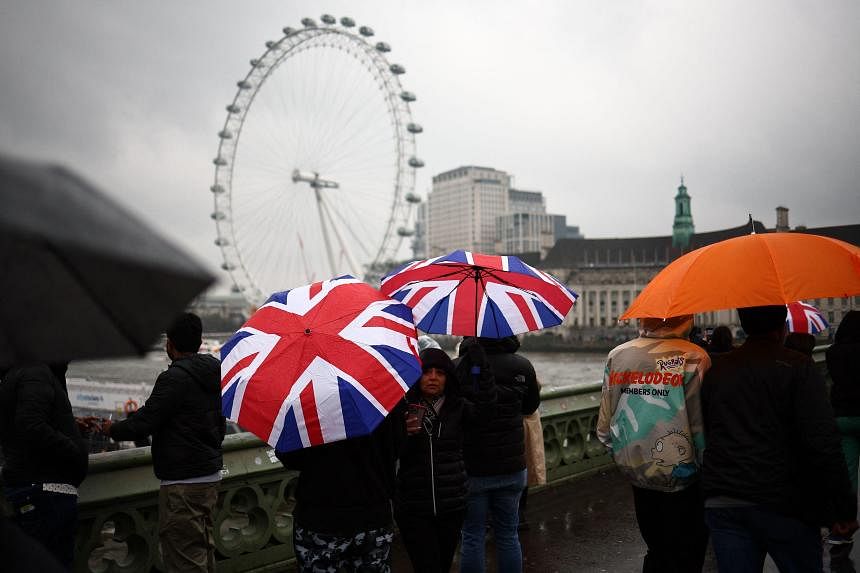GENEVA – An influential United Nations human rights body delivered a scathing assessment on March 28 on the protection of civil rights in Britain, accusing the Conservative government of backsliding and urging the country to abandon its controversial legislation to send asylum seekers to Rwanda.
The criticisms from the UN Human Rights Committee came as it presented its conclusions from two days of meetings in Geneva in March.
It met a delegation of 24 British officials to review the country’s compliance with an international treaty for the protection of civil and political rights.
“We are witnessing a really regressive trend and trajectory” in Britain, Dr Helene Tigroudja, a committee member, said at a news conference in Geneva.
She said that the trend was occurring “in many, many sectors when dealing with civil and political rights, and I hope our message will be heard by the UK”.
The 18-person UN committee addressed wide-ranging concerns over the two days.
Britain is one of more than 170 countries that ratified the treaty – the International Covenant on Civil and Political Rights – and member states go through periods of review.
The committee’s conclusions are generally taken seriously, but it does not have the power to impose sanctions.
The committee called on Britain to “swiftly repeal” provisions of a law passed in 2023 to try to curb illegal migration and a fiercely contested Bill in Parliament that would send asylum seekers to the East African country of Rwanda.
Noting that Britain’s Supreme Court had ruled that the Bill violated international law, the committee said it deprived asylum seekers of their most basic rights.
“These texts exemplify the regressive trend experienced in the UK,” Dr Tigroudja, a French professor of international law, said in a written comment. “And not only on the exercise of civil and political rights, but also on respect for the rule of law, of the judiciary and basic humanity principles enshrined in the 1951 Geneva Convention on the status of refugees.”
Prime Minister Rishi Sunak of Britain has made curbing the arrival of migrants and asylum seekers by small boats a flagship policy of his government as it prepares for an election expected in 2024.
A spokesperson for the British government said in an e-mailed statement on March 28 that the country was “committed to the Safety of Rwanda Bill, which will help stop illegal migration to the UK, dismantle the people-smuggling gangs and save lives”.
The Conservative government has argued that the best way to stop the arrival of migrants without legal permission to enter the country and asylum seekers is to ensure they cannot remain in the country, and that asylum seekers could continue to challenge their deportation.
The UN committee also took issue with Britain’s counter-terrorism legislation and warned that proposed amendments to laws governing intelligence agencies’ scrutiny of information could allow overly broad government collection of personal data.
The committee said that an anti-protest law passed in 2023, Public Order Act 2023, imposed “serious and undue restrictions” on the right of peaceful assembly and criminalised some forms of peaceful protest by Britons.
It said that it was deeply concerned by the excessive use of the Act to restrict civic space and that law enforcement agencies should end the use of facial recognition and mass surveillance technologies at protests.
The committee also expressed concern over a law passed in 2023 to address the legacy of violent conflict in Northern Ireland that allows conditional immunity from prosecution for people who committed serious crimes and human rights abuses, as well as a law passed three years ago that sets a time limit on legal action against military personnel arising from overseas operations.
The laws raised longstanding questions about the lack of investigation into allegations of torture or prosecutions for war crimes and other abuses, Dr Tigroudja noted.
“We put this in the conversation because it’s really a serious concern,” she said.
The British government spokesperson said in the statement on March 28 that “the Legacy Act seeks to put in place effective information recovery for victims and families, while complying with our international obligations”.
British officials have said that the legislation on overseas military operations left open the possibility of prosecution in all cases, subject to the discretion of the prosecutor.
“We cannot say we are satisfied by this general answer,” Dr Tigroudja said.
She said the committee was particularly concerned about the laws that limited the possibility of investigating or prosecuting serious human rights abuses committed during the conflict in Northern Ireland or by British military personnel in overseas operations.
The committee said that Britain should repeal or amend both laws. NYTIMES

